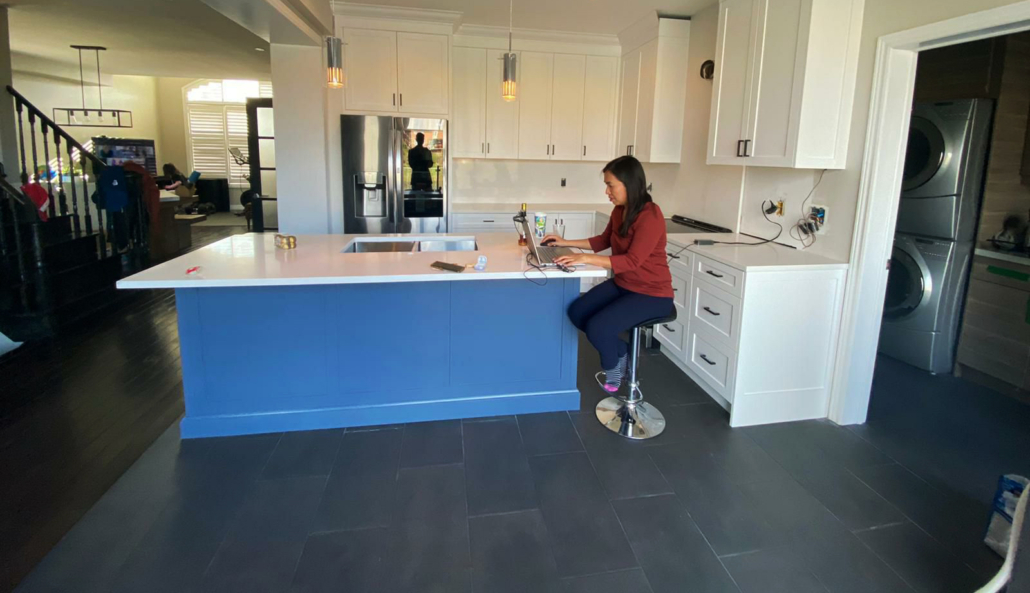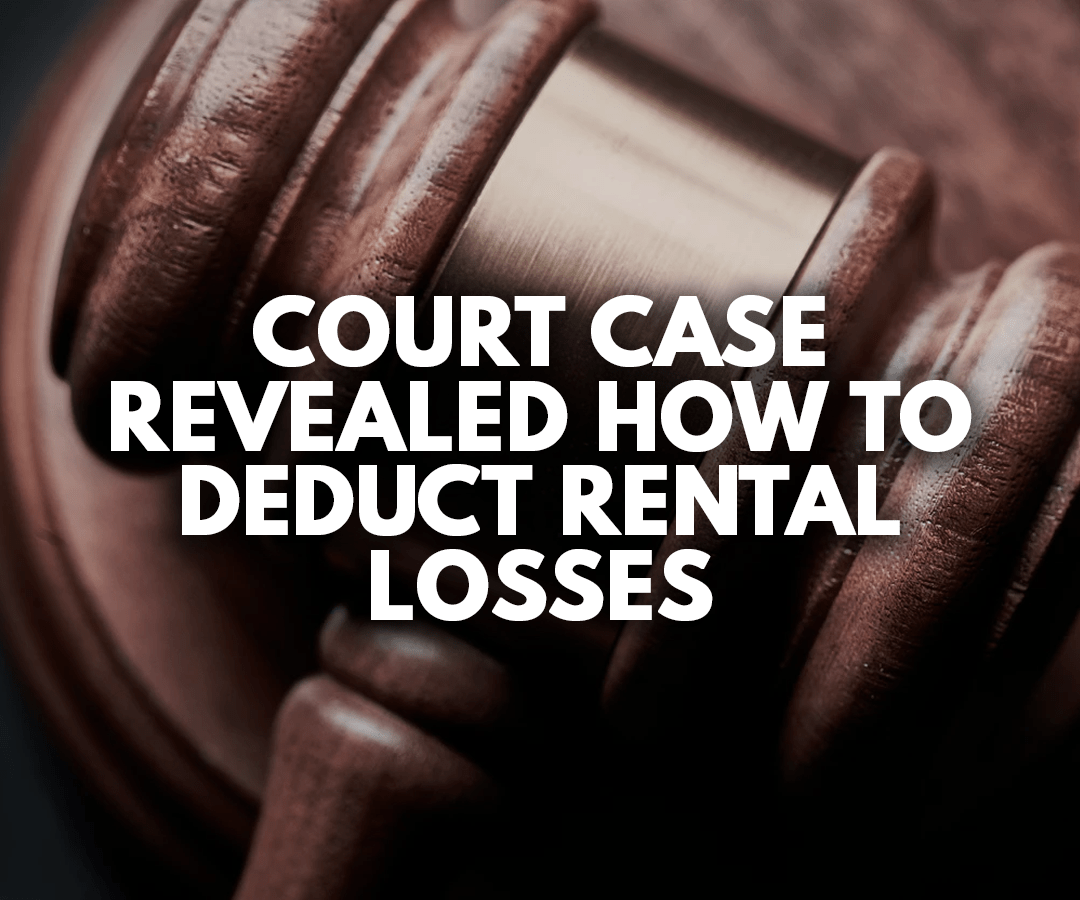A few weeks ago, we discussed the CRA criteria to deduct renovation expense – How to Write-off Renovation the Right Way.
Someone comment on social media that the rules are “clear as mud”. 😂😂
I mean, it is a fair comment. It isn’t simple. This is why CRA and taxpayers fight with each other in court.
Sometimes, even the Tax Court judge found it confusing to apply the rules.
In the court case DiCaita v. The Queen, 2021, the tax court judge made a comment that “determining if any particular expenditure is capital or current in nature can be difficult to apply.”
This is a court case about a Toronto taxpayer and his 2012 and 2013 tax returns. He owned two rental properties, one in Vancouver and one in Phoenix, Arizona.
The Vancouver property was a condo townhouse that was built in 1970’s. This Toronto taxpayer owned the unit since 1989 and has always rented it out as a rental property.

In April 2010, the condo board decided to undertake major remediation of the condo complex to deal with issues of rot, mold, asbestos, water leakage and structural issues. The project involved only the exterior common area and had nothing to do with the interior of any of the units.
This project was expected to last over 20 months and the cost to complete the project was in excess of $6M.
I don’t know about you, I live through my new home’s kitchen renovation. We tried to complete all the “dusty work” before we moved in to limit the amount of dust and disturbance. It isn’t the easiest thing to do with my family. Bruce has an eye allergy as a result. ☹
As we could all imagine, this $6 million condo complex project would be a lot more disruptive for all occupants of the complex than my small kitchen reno.
As a result, the tenant living in the Vancouver condo wasn’t happy and asked for a rent reduction. Taxpayer declined and the tenant vacated the unit sometime in November 2010.
He tried to re-rent it again. It wasn’t easy with the construction going on. No one was interested. He believed that that if the remediation project had not occurred, his unit would have remained rented.
During this period, the taxpayer decided to take advantage of this period and renovate the property. The property was always rented in 1989 and there was simply not enough time in between tenancies to do much repairs.
He took the opportunity in January 2012 to replace some fixtures and appliances caused by wear and tear over time.
The repairs to the unit consisted of:
- Replacing some bathroom fixtures, sinks, vanities, toilet
- Kitchen cabinetry, countertop, appliances
- Fireplace insert
- Doors, hardware, door handles, railings
- Carpets/flooring
- Millwork in terms of baseboards and paintings.
The cost of repairs was about $24K.
He did not obtain any permit as the work done was not reconstruction or rehabilitation of the structure. No permit was required.
All items replaced were of similar quality and value to what was replaced. There was no upgrading of any of the items.
After the repairs, the unit was rented for $2,200 per month December 2012, an increase of $700 per month, in line with comparable units.
As you can imagine, he reported no rental income from January 2012 to November 2012, only $2,200 of rent in December 2012, and yet claimed $22K of the repairs incurred.
On top of it, he also claimed condo fees, mortgage interest, property tax, management fees and other expenses totally $46,499.
If my math is right…this would have been in this taxpayer’s 2012 tax return…
Income $2,200
Expenses $46,499
Rental loss ($44,299)
😱😱😱😱
Reporting multiple years of losses often trigger a red flag in the eyes of CRA.
CRA disallowed $41K of the expenses claimed on the following basis:
- the taxpayer was not earning income from January to November = no source of income, no deduction
- the repairs and maintenance claimed, specifically to the $22K deducted, was capital in nature and it should not be claimed as current expense. They could be added to the cost of building, but not as a one-time write-off.
Taxpayer appealed.
The judge analyzed the case with respect to CRA’s position:
- Was the Vancouver property a source of income?
- A taxpayer cannot deduct expenses unless he/she is incurring the expenses in an attempt to make a profit with “objective standards of business like behaviour.”
- Taxpayer has rented out the property before and after of the exterior remediation. He was conducting repairs in an objective standard of businesslike behaviour. The judge concluded that the unit was a source of income before, during and after the renovations.
- Just because the property wasn’t able to be rented out from January 2012 to November 2012, it wasn’t earning income during that time, but it does not mean that it was not a source of income – which simply put, allows the taxpayer to deduct the expenses.
- Taxpayer attempted to rent out this unit during the entire remediation period. (Documentation matters!)
- So yes, the judge decided that the taxpayer could indeed expenses from January to November 2012, even though the property wasn’t earning any income.
- Can he deduct the repairs & maintenance of $22K?
- The judge reviewed the detail of renovation work completed.
- The work was meant to replace existing items that were worn out and had reached the end of their useful life.
- Repairs were done for less than $24K, not a material amount considering the work done.
- Repairs did not require building permits
- No redesign of unit, did not change or alter the functionality of the unit, no change in layout.
- Materials used were similar in quality, no upgrades to better quality products.
- Repairs was restorative and not rehabilitative.
- Just because a lot of repairs are done all at once, it does not make the expenditures “capital in nature”
- Cost of repairs compared to value of property was only 5% of the value of the unit. Not much in the hot real estate market.
Bottom line, the judge sided with the taxpayer on the deducting $22K worth of repairs. 😊
Reading court case is interesting, using them and applying them to our clients’ situation just make it a lot more useful.
Hopefully you have some takeaways as well.
Until next time, happy Canadian Real Estate Investing.
Cherry Chan, CPA, CA
Your Real Estate Accountant






Sajjad S
Thats an awesome story! thanks for sharing in such great details.
LLs should be allowed to deduct utilities that reach end of life as a current expense.
Christian Szpilfogel
Insightful article as always Cherry. It also shows the lengths CRA will go in terms of taking absolute positions. The tax payer bears the cost of defending themselves (though it is tax deductible, LOL). The best audit is one you can avoid. A good accountant helps navigate these waters.
Cherry Chan
Absolutely Christian.
Best audit is the one you can avoid.
I once advised a client not to write off his renovation cost (which created tens of thousands of rental losses). Not because it wasn’t legitimate, it was because I knew there’re numbers in his returns that were not properly supported.
While we’re eligible to deduct the rental losses at times, it’s important to look at the big picture as well.